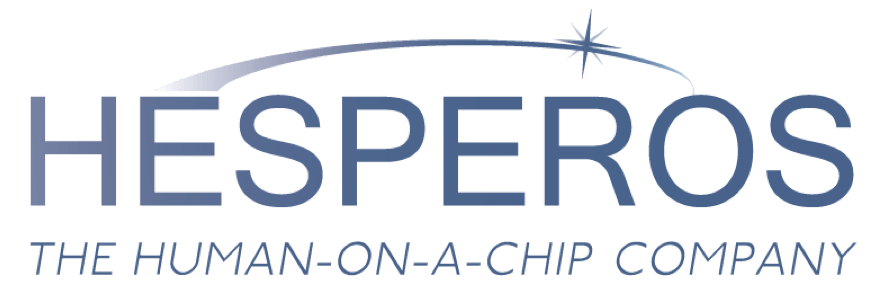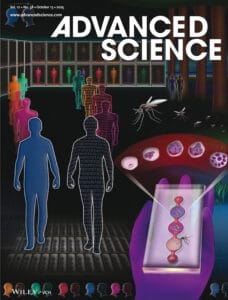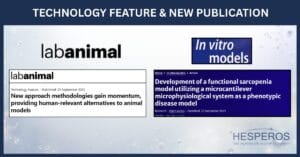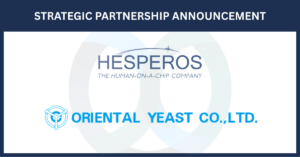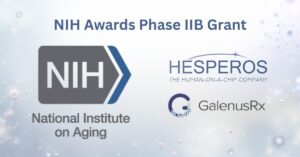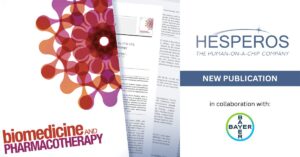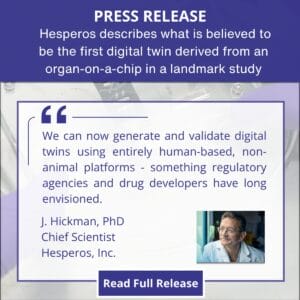Featured on the cover of Advanced Science, our study presents a human-derived Malaria-on-a-Chip system that captures the biology of infection and delivers actionable insights for real-world therapeutic translation.
Hesperos and AsedaSciences announce a strategic channel sales partnership combining Human-on-a-Chip® and AI-driven 3RnD® to advance safer, more efficient drug and chemical development.
Hesperos’ Human-on-a-Chip® technology earns recognition in a Nature Lab Animal article highlighting advancements in human-relevant, new alternative methods (NAMs) models and publishes new research advancing its sarcopenia-on-a-chip system.
Hesperos and Oriental Yeast Co. form a strategic partnership to expand access to Human-on-a-Chip® services across Asia, accelerating safer, more effective preclinical drug development.
Hesperos and GalenusRx receive $3M NIH grant to study drug-induced dementia using Human-on-a-Chip® systems and improve medication safety for older adults.
Hesperos and Bayer unveil the first Human-on-a-Chip® model replicating stress-induced cognitive decline to advance non-animal CNS drug research.
PRESS RELEASE Key Results from Study First Digital Twin from Organ-on-a-Chip: Hesperos successfully created what’s believed to be the first digital twin derived from an organ-on-a-chip (microphysiological) system.Multi-Organ Human System: The study utilized a multi-organ system … Read More
